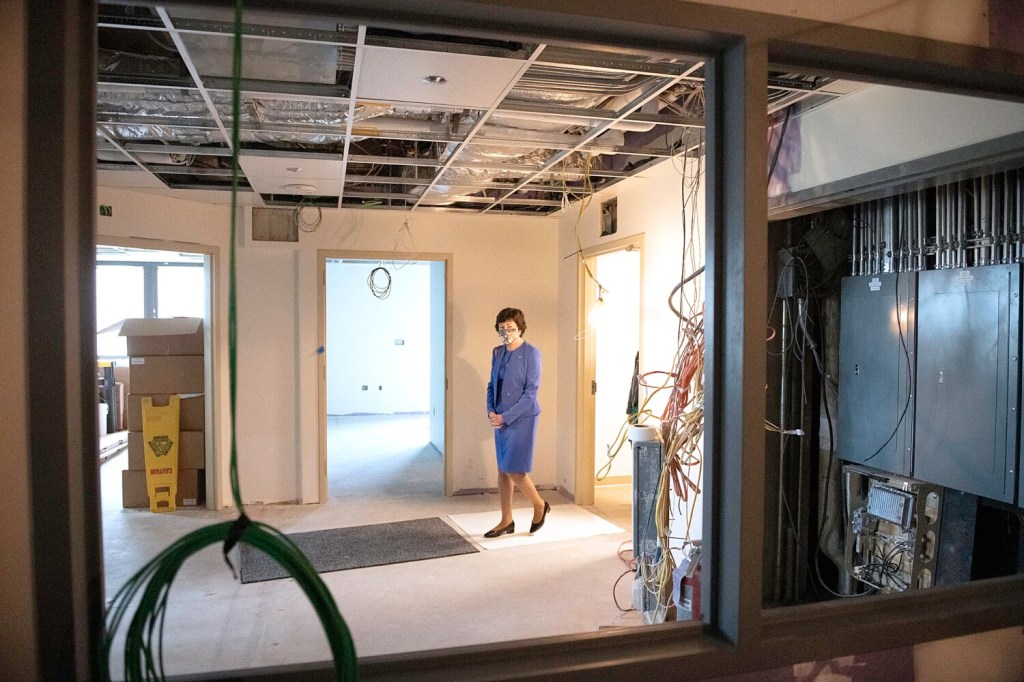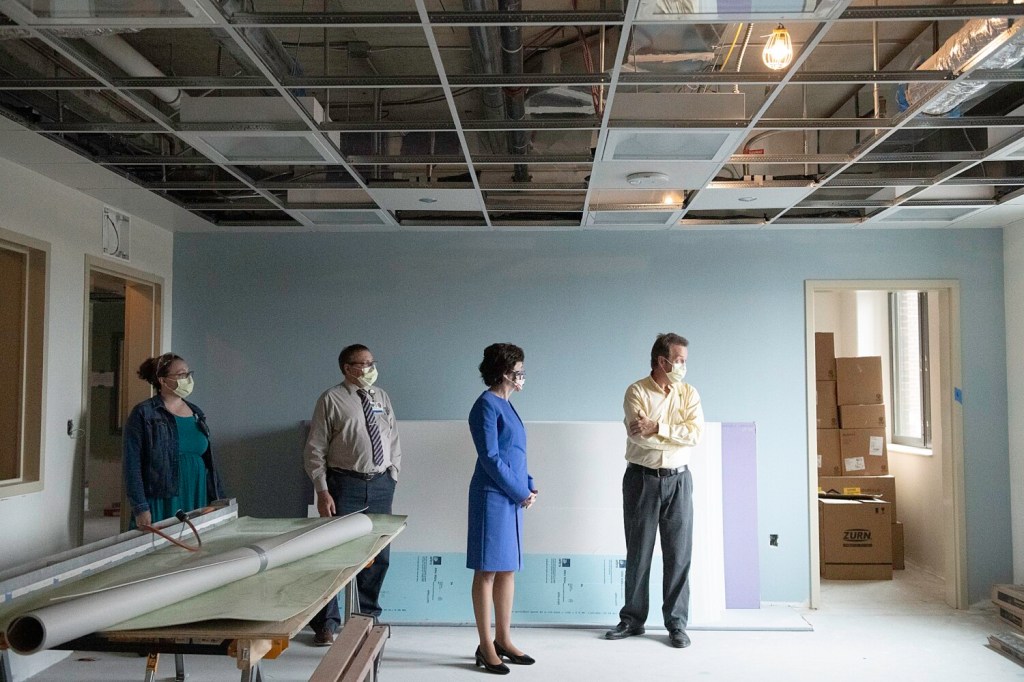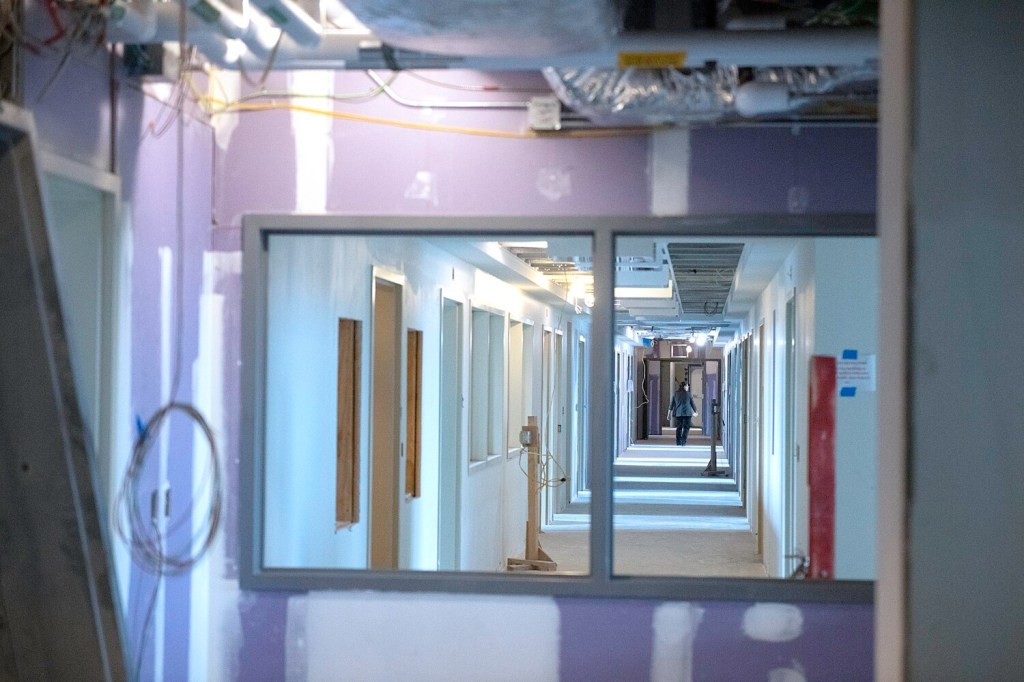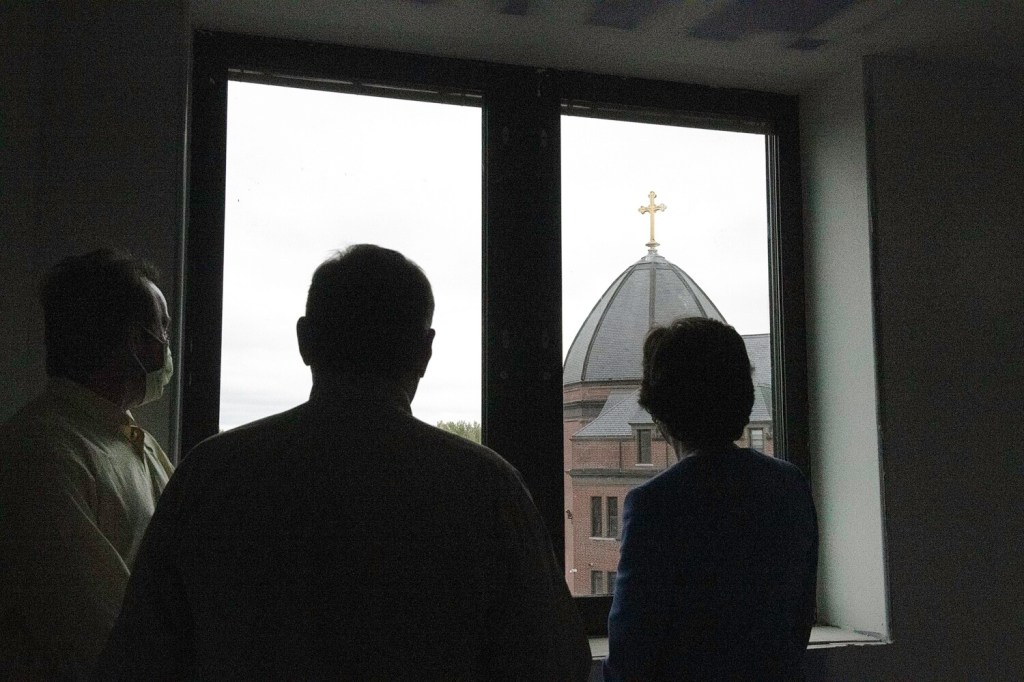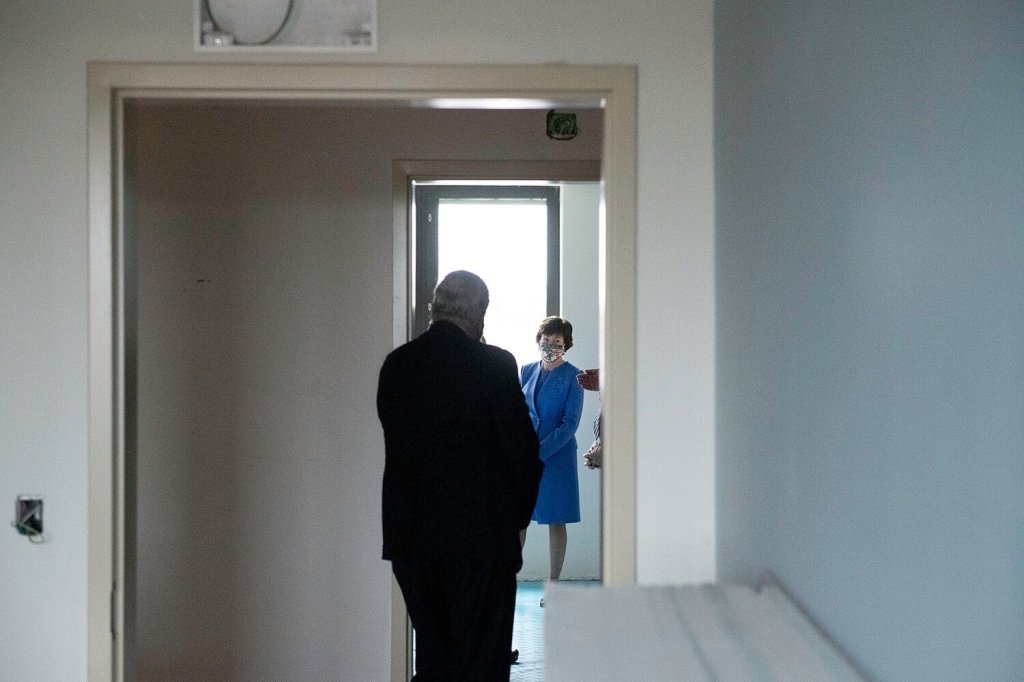LEWISTON – The new adult behavioral health unit slated to open this year at St. Mary’s Regional Medical Center will be “a place to give care that matches the caregiving,” behavior health medical director Dr. Michael Kelley said.
The new unit on the top floor of St. Mary’s hospital building is a major improvement from the current unit he said during a tour with U.S. Sen. Susan Collins, R-Maine, on Friday.
“We’ve got such amazing doctors and nurses and social workers and it finally feels like we’re going to be able to give them what they deserve,” Kelley said.
While the new unit will be 18 beds instead of the current 24, all but a few of the rooms are single occupancy with private bathrooms.
Kelley and nursing director Paul Rouleau said the current unit might have six to eight beds at any given time that are not open for patients, depending on the needs of the patients in the unit. Some patients might not be comfortable in a double occupancy room, for example. There will be some double rooms for patients who prefer that.
The design of the unit, from the large windows with views to the east and west, to private spaces for patients to use the internet or talk to their families, was created with input from an advisory committee of patients and with their needs in mind.
“They sat in every one of the first years’ worth of design meetings, and you’ll see that as you go through,” Kelley said.
“I thought it was absolutely spectacular,” Collins said after the tour. “Everything from the private rooms to the colors that were chosen to the big windows with gorgeous views and natural light, will make it easier for people to feel comfortable to receive the treatment that they need, and shorten their stay in the hospital.”
Many of the same improvements in the adult behavioral unit were already implemented when the child and adolescent behavioral unit was moved into a renovated space in 2019. Updated features, such as the single rooms, are already making a difference, the providers said. Instances where restraint or seclusion must be used have decreased significantly, they said, and they believe it’s because patients now have a quiet, private space they can go to.
There will be telemedicine and remote access capabilities for patients, so they can communicate with other doctors or remotely participate in court hearings. Each room has its own TV and medical equipment, such as oxygen capabilities, both of which are features of a typical medical unit room.
The goal with that, Kelley said, was to give patients there “the same respect a medical patient would have in a medical hospital (room).”
When patients are in an environment more conducive to healing, providers find that they are able to leave the unit sooner, Kelley said. The waiting list for behavioral health services at St. Mary’s is still long, he said, and there might be 10 to 15 people in the emergency department waiting for a bed to open at any given time.
“But we’re excited to give them a much nicer place to be,” he said.
Send questions/comments to the editors.

